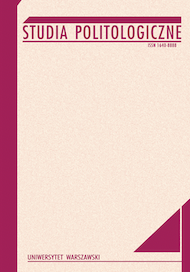The President of Poland’s immunity in criminal matters
The President of Poland’s immunity in criminal matters
Author(s): Michał MistygaczSubject(s): Politics / Political Sciences, Political Theory, Politics and law
Published by: Wydział Nauk Politycznych i Studiów Międzynarodowych UW
Keywords: President; immunity; offence; accountability; criminal liability; constitutional tort
Summary/Abstract: The issue analysed by the author is that of the institution of Presidential immunity pertaining to the President of the Republic of Poland, and operating in such a way that a sitting President cannot be held criminally liable before a common court for acts tantamount to offences. Inclining towards the essence of this solution and its consequences when it comes to respect for constitutional principles of legalism and equality before the law, the author at the same time seeks to assess the completeness of the provisions in effect in Poland, in so doing identifying a lack of clear directives as to how a former President (i.e. one who has left office) is to be held criminally liable. The conclusion reached by the author can be said to boil down to a recognition that the liability of a former President before Poland’s Tribunal of State for offences or crimes committed is of an accessory nature where common courts are concerned, with the condition underpinning recognition of the Tribunal’s primacy in matters of jurisdiction being the National Assembly’s adoption of a Resolution holding a former President liable constitutionally, and potentially at the same time initiating action in respect of given offences. Any lack of such a National Assembly Resolution must give rise to a particular kind of reactivation – in respect of the former President – of jurisdiction in the dispensing of justice by common courts, given the fact that one of the negative procedural premises has ceased to be non-applicable. Thus, unlike in the case of a President still holding office, the cognition of the Tribunal of State in relation to a former President is neither exclusive nor automatic. Such observations have also stimulated work by the author to develop de lege ferenda postulates regarding the subject matter, as set against the wider background of Poland’s political and constitutional system.
Journal: Studia Politologiczne
- Issue Year: 61/2021
- Issue No: 61
- Page Range: 76-99
- Page Count: 24
- Language: English

